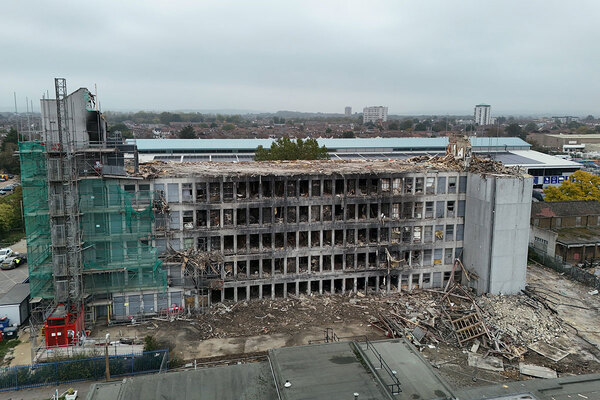You are viewing 1 of your 1 free articles
 Alistair McIntosh
Alistair McIntoshAlistair McIntosh is one of the social housing sector's most respected and best known personalities.
As founder and chief ...more
Time for housing organisations to share power with staff in an age of automation
As we enter the era of the robots, housing organisations should look at putting workers and tenants on their boards, argues Alistair McIntosh
I can’t make head nor tail of housing these days. One minute it is all about mergers and whizzbang technology (that’s the way to slash the headcount and cut costs).
Then I see that the same landlord is winning awards for helping people into work. What’s going on? Is there some sort of revolving door? As soon as HR boots you out, the community investment types haul you back in.
There are two sets of tech fans. One crew of intrepid explorers who roam far and wide, seeking out automated wonders of the world and asking how we can apply these to housing.
I hear that Amazon can now travel through time and retrospectively deliver Valentine’s roses and flowers for absent-minded lovers. If it’s not true today, it will be soon. That’s the sort of thing that gets them going.
But then there’s the other crew: the brutal cost cutters. One housing IT firm claims it costs £14 to deal with a resident in person, that then falls to a fiver if you talk to them on the phone.
“As soon as HR boots you out, the community investment types haul you back in”
But if you use a robot, the cost drops like a stone to 20p. Why not go the whole hog and use cardboard cut-outs of officers like the police do? That’ll be cheap. Worryingly, this firm points out that a robot can outwit a chess grandmaster.
So, are we all going to lose our jobs? Not according to the Office for National Statistics. It says the usual suspects like young people and women working part time are most at risk of being fired. Though you do get quirks. Everyone thinks that driving a van is an obvious target for automation.
Despite this, the number of van drivers has soared. You need those white van drivers to deliver the goods you order from the likes of Amazon. But maybe not forever.
You can paint a gloomy picture of automation. Not everyone agrees, though. The Business, Energy and Industrial Strategy Committee looked into this and found that we need more robots, not fewer. Why do they say that?
The UK’s productivity figures are sluggish, and this may be one way to boost them. Deloitte is even more gung-ho in its From brawn to brains report. It points to a sharp hike in new jobs taking place at the same time as the robots are marching on. And the workers earn £10,000 a year more in their higher-skilled posts.
The committee did have some concerns. They wanted workers to get a fairer share of the spoils and made the usual criticisms of the likes of Amazon and Uber.
In calling for co-operative models of ownership, they chime with the latest writings of the influential economist Thomas Picketty. He wields a mountain of data to show that inequality is getting worse in the modern world. His answer to this is “participatory” socialism. It’s time to cut the workers in so they can share knowledge and power.
“If we say we’re better than the private sector, we have to prove it”
Could this be the way forward for housing organisations? Mr Picketty would put tenants and workers on the board. You already get workers on German company boards, so we can learn what works.
And he’d want a more even share of the spoils between executives and the rest.
If we say we’re better than the private sector, we have to prove it. There’s enough wealth in housing to make the maximum use of robots while transforming the life chances of staff and residents.
We can’t win a race to the bottom, but we can win hearts and minds. The Conservatives took the North with optimistic promises. We can actually deliver, if we want to.
Alistair McIntosh, chief executive, Housing Quality Network
Sign up for our daily newsletter
Already have an account? Click here to manage your newsletters













